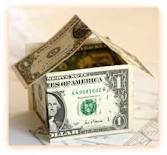Answer These 7 Questions Before Buying Your First Home
Buying your first home is a major undertaking. If you are not properly prepared, it could cost you.
 Shane R. Fisher, CPA
Shane R. Fisher, CPA
 Buying your first home is a major undertaking. If you are not properly prepared, it could cost you. Here are seven critical questions you should ask yourself when buying your first home.
Buying your first home is a major undertaking. If you are not properly prepared, it could cost you. Here are seven critical questions you should ask yourself when buying your first home.
Where do you want to live?
When considering a new home – whether it is your first one or a follow-up – the most important thing you need to weigh before purchasing that home is whether or not you are going to be happy with where you are going to live. Take into account what type of neighborhood you want to live in, the proximity to work and the things you like to do, and the distance to your friends and family.
 How much house can I afford?
How much house can I afford?
The general rule when buying a home is that your mortgage should not exceed 28% of your gross monthly income. Overall, your total debt service should not exceed 36% of your gross monthly income. If you just bought a new vehicle and have a lofty car payment and plenty of student loan debt, you may be extremely limited on a home purchase.
What kind of loan do you qualify for?
There are various types of home mortgages, and each has its own unique uses. Most people use a conventional fixed-rate mortgage in which the interest rate is fixed for the duration of the loan. Adjustable rate mortgages give the buyer a starting mortgage interest rate for a specified period, then the rate becomes adjustable and tied to a specified market rate for the duration of the loan. There are interest-only mortgages as well that let the buyer pay just interest for a period of time, but then convert to either a conventional or adjustable rate mortgage for the rest of the loan. The Federal Housing Administration (FHA) offers loans where the mortgages are guaranteed by the FHA: they often require a smaller down payment, but they may have a lot more hurdles to clear than the previously described mortgages. Lastly, the Department of Veterans Affairs (VA) offers military veterans (and sometimes spouses) mortgages with little or no money down that are guaranteed by the VA.
How does my credit score affect me?
About six months before you think you will be purchasing a house, it is good practice to get your credit history. Giving yourself this time will allow you to repair and improve any imperfections on your credit score. Improving a credit score by 50 to 100 points could save you at least half a percent on your mortgage interest rate. On a 30-year mortgage, that could be a difference of over $50 a month or $18,000 over the life of the mortgage. The bank will look back this far at your financial information. You will also need a prior year income tax return and a current check stub from your place of employment.
How much do I need for a down payment?
The type of mortgage you select could drastically change the amount you need for a down payment. Not only is a percentage of the home purchase required at closing, you will also need to account for the 1% transfer tax, real estate commissions for your broker and the seller’s agent, real estate tax escrows, recording fees, appraisal fees, credit report fees, and other ancillary fees. Overall, closing costs generally range from 2% to 5% of the price you will pay for the home.
How do I put together a down payment?
Save, save, save! That said, it’s not always easy to do so when you are first starting out. Here are a few tips for saving for your down payment:
- Hold on to your income tax refund.
- Find out whether or not you can tap into any retirement funds you may have accumulated, and what the ramifications of doing so are.
- Prepare a weekly budget to cut down on trivial expenses.
What are my costs to maintain my new home?
The last question you have to ask yourself is what additional costs will you incur now that you will be a homeowner. Outside of the new mortgage, additional expenses often include real estate taxes, property insurance, utilities, property maintenance, furnishing the new home, and property improvements or additions. All of these costs are for items that you had not previously had to pay for. Depending on your lifestyle and whether or not you purchased a fixer-upper, you may be in for a lot more additional costs than just the home purchase.
Buying a home is a major decision in any individual’s life. It should not be made until you have answered the above questions and feel comfortable with the answers you come to. At the end of the day, you are not just buying a house as an investment; you are buying a place to call home.
Shane R. Fisher, CPA, is vice president of finance at Tri Corner Homes in Harrisburg, Pa., and is a member of PICPA’s CPA Image Enhancement Committee.
To get more personal finance and small-business tips, subscribe to PICPA's Money & Life.
PICPA Staff Contributors
Disclaimer
Statements of fact and opinion are the authors’ responsibility alone and do not imply an opinion on the part of PICPA officers or members. The information contained in herein does not constitute accounting, legal, or professional advice. For professional advice, please engage or consult a qualified professional.






